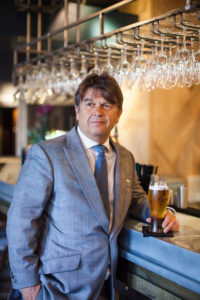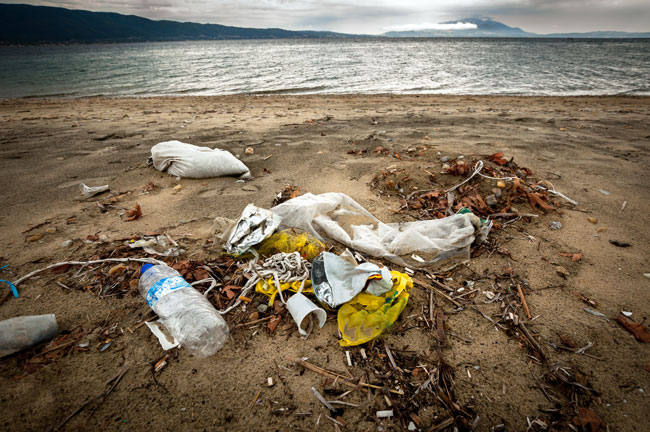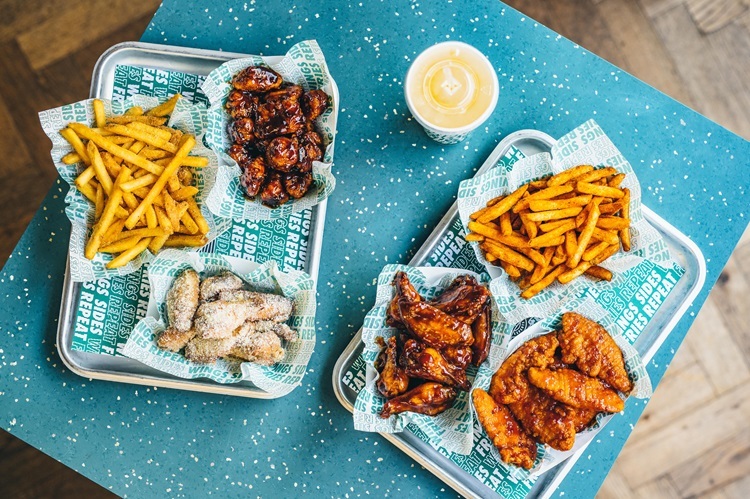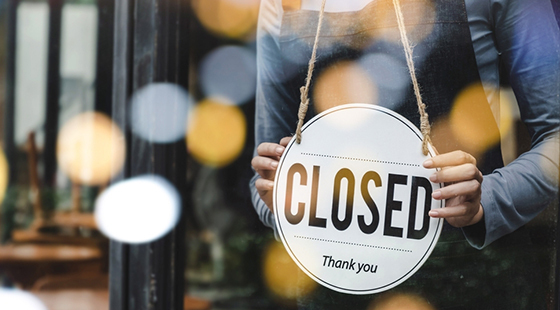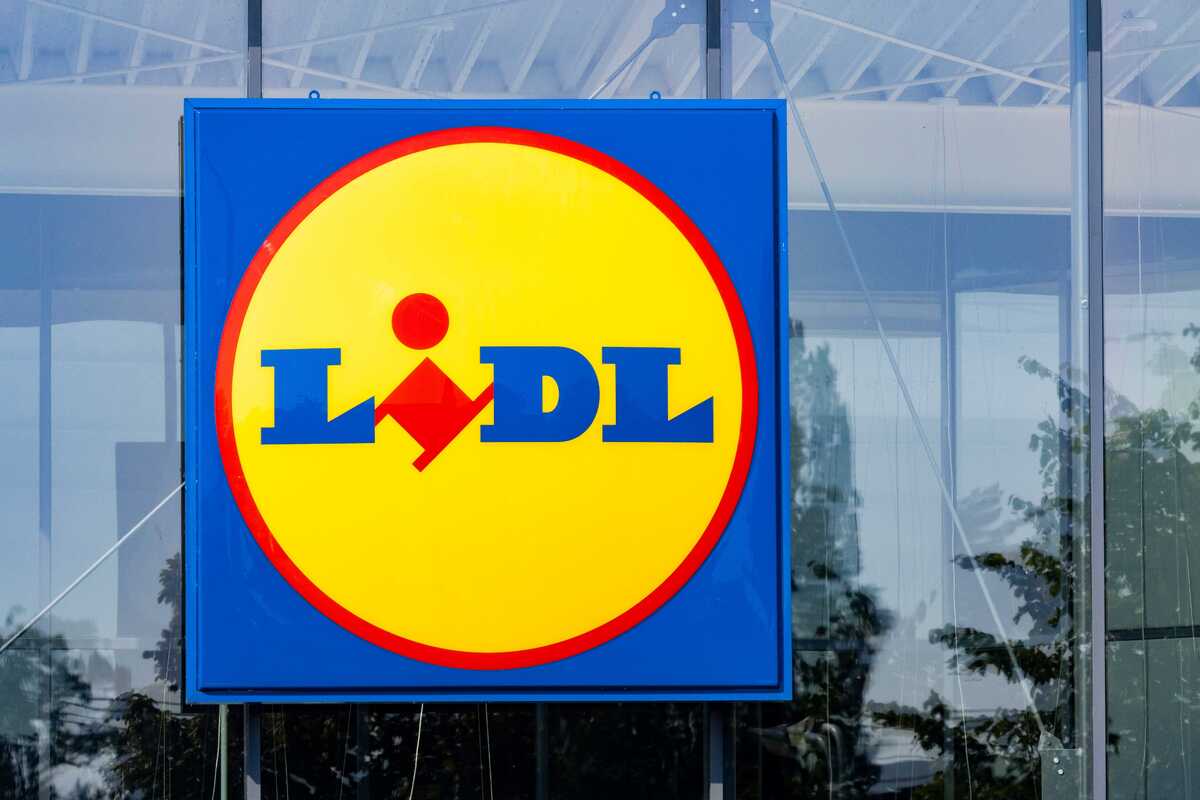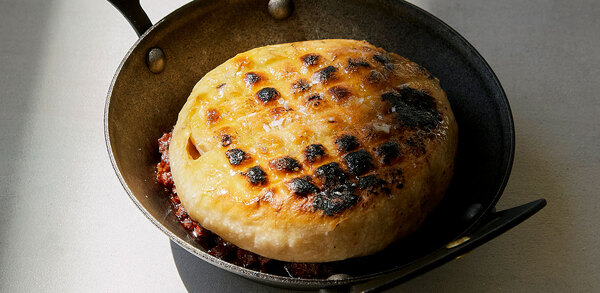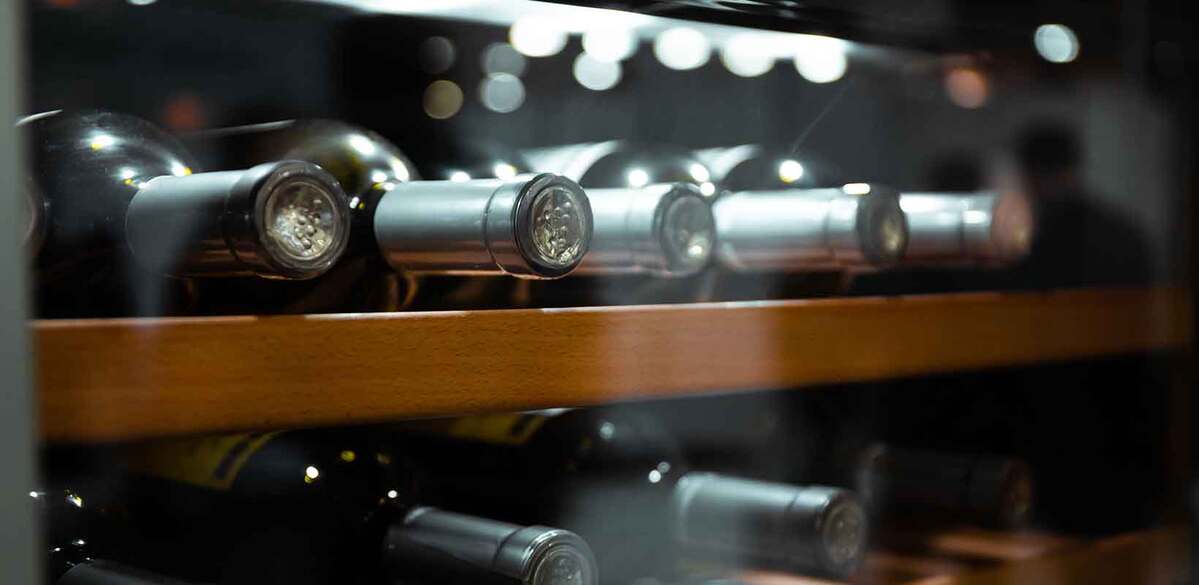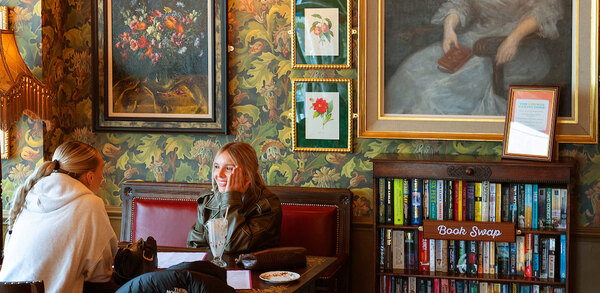It's war on the straw!
With the millions of disposable plastic straws that end up in the seas each year taking a grisly toll on marine life, some caterers have decided that enough is enough. Elly Earls reports
True to his word, by the time the 22nd came around, Borg-Neal ensured that all plastic straws had been removed from bars across the businessâs then 18-strong estate. If customers asked for a straw, they were offered an eco-friendly alternative and told about the reasons behind the companyâs Ban the Straw campaign â" that every plastic straw ever made still exists today, polluting landfills, rivers, roadsides, sewers, beaches and oceans.
Straws are particularly harmful to marine life. More than one million sea birds and a hundred thousand marine mammals are killed by plastic waste each year. Itâs little wonder, given that there are more than five trillion pieces of plastic floating around in the worldâs oceans, according to a 2014 study published in a Public Library of Science journal.
Since Oakman Inns pledged to ditch plastic straws earlier this year, it has had a snowball effect across the industry. Food and drink operators including the Liberation Group, Halloumi Glasgow, Hawksmoor and the Breakfast Club have all followed suit and are urging their industry colleagues to declare war on the plastic straw.
The Sustainable Restaurant Association (SRA) is doing the same for its September Reduce Reuse Recycle campaign, which is encouraging hospitality operators to become âProper Tossersâ, and dispose of plastics properly.
âIf everyone in our industry had the same approach, it would make things much easier and would have a massive, positive impact on the environment,â says Eva Arnaiz, charities and communities manager at 10-strong café group the Breakfast Club. The group has made an 80% dent in the 400,000 straws it was using a year and will shortly switch the remaining 20%, currently served with milkshakes and cocktails, to a biodegradable alternative.
âWe have the responsibility to make the difference,â agrees Emmy van Beek, creative co-ordinator and head of sustainability at steakhouse and cocktail bar chain Hawksmoor.
The business has completely eliminated plastic straws and now offers only a clear, biodegradable straw as standard with drinks that contain crushed ice or a large garnish â" just four out of the cocktail menuâs 30 options.
âNo matter how many we were using, we were still using plastic straws,â says van Beek. âIt didnât matter that we were using 1,000 a week; it mattered that we were even using one.â
Meanwhile, at Greek restaurant Halloumi in Glasgow, which has entirely eliminated its plastic consumption since it banned plastic straws in June, bartenders now serve straws only on request. The paper straws they have selected are fun, quirky and colourful and match the brandâs personality.
The team have been surprised at how many of their customers â" 95%, according to general manager Lapreet Atwal â" have got behind the initiative. âAs long as your staff are communicating why they have made the change, itâs a positive and meaningful experience for the environment,â he says. âSome people donât like paper straws. You canât please everyone â" thatâs preference â" but for the most part, itâs been a wholly positive experience.â
There is another way
Although ditching plastic straws is an easy win compared with other sustainability initiatives, which can involve operational changes or big injections of cash, itâs not a process without its pitfalls. Both Oakman Inns and Hawksmoor struggled to find an alternative straw their customers would be happy to use.
After much searching and sampling, Oakman Inns opted for Lockhart paper straws to replace its longer straws, and a fully compostable Vegware PLA bioplastic straw, made from plants rather than oil, to replace its thinner black plastic straws.
At Hawksmoor, the solutions van Beek landed on were reusable metal straws for bartenders and clear, straight, biodegradable straws for customers. The only problem they face now is how to dispose of them.
âBiodegradable straws are perfect for being composted â" a process that needs oxygen â" but we send all our food waste to anaerobic digestion, where thereâs no oxygen involved, so at the moment the straws are going into our general waste,â she explains. âI feel comfortable with the fact weâre no longer putting plastic into the world thatâs going to be sitting on wasteland for hundreds of years, but we havenât fully landed on the best way to dispose of these straws or found out if thereâs a better straw for our method of disposal.â
Cost is another obvious issue. Inevitably, biodegradable straws are more expensive than the plastic equivalents. However, only providing straws to customers who really want one helps reduce the extra cost. And as more and more operators commit to ditching plastic straws, the cost differential will become more favourable. In the interim, operators can expect to enjoy the benefits of reduced on-site storage requirements and less waste to manage.
Reflecting on Oakmanâs straw ban, Borg-Neal says the longevity of plastic hits home only when you stop using it. For this reason, the group is commissioning a sculpture from the thousands of plastic straws it still holds.
Other operators can start by making a simple decision. âDo you want to do something that will help our planet and your neighbours?â Borg-Neal asks. âSince we started Oakman Inns almost 10 years ago, we have always tried to be aware of our economic, social and environmental impacts, but sometimes you need a rather clever colleague to show you a small YouTube film that illustrates there is an alternative way of doing things.
âBan the Straw wasnât started as some great evangelical mission â" this is just Oakman Inns trying to stick to our ethical business principles and to let people know â" by our actions â" that there is another way.â
Throughout September the SRA is calling on others to follow the inspiration of these businesses. You can support its Reduce Reuse Recycle campaign and see what other operators are doing at www.foodmadegood.org or by joining the social media conversation at @FoodMadeGood
The cups that keep on giving
Plastic straws arenât the only single-use disposable piling up in landfills and polluting rivers, beaches and oceans. Of the 2.5 billion takeaway coffee cups used annually in the UK, many of which are advertised as being recyclable, only about 1% are, in fact, recycled. Itâs another target for the SRAâs Reduce Reuse Recycle campaign. Some of the businesses setting the most positive example in this area are universities, which serve around 500,000 hot drinks a year.
The University of Glasgow has been offering a 10% discount on hot drinks served in reusable cups for three years, while the University of Brighton has been giving a 10p discount on hot drinks in reusable cups for the past four years.
As neither promotion has enjoyed huge success, both universities are refreshing their reusable cup schemes, starting with Freshersâ Week 2017. Instead of offering a discount on reusable cups, theyâll be charging more for hot drinks in disposable cups.
âWe looked at the success of plastic bag charging in supermarkets, where the default is that you pay a surcharge for a plastic bag. In effect, we are mirroring this approach,â says David Hicks, deputy director of accommodation and hospitality services at the University of Brighton. Oxford Brookes, which has a student population of 18,000 â" 3,000 of whom bought reusable Mugs for Life last year â" is taking things one step further with a closed-loop, cup recycling scheme.
Steve Travis, contract director for Chartwells at the university, says: âWeâve teamed up with a company called Simply Cups, who collect our coffee cups from us, extrude the plastic and turn it into everything from park benches to bollards, clipboards and napkin holders â" 1,500 cups make a park bench. We will be looking to buy products such as these, so weâll be generating the waste, sending it away and it will come back to us in a different guise.â
The university has replaced many of the general waste bins around the campus with 22 Simply Cup recycling bins, which have one container for lids and sleeves, another for liquid waste, and a third for cups, all with clear usage instructions.
âThe driver is to get students away from one-use cups and onto the Mugs for Life, so we can actually reduce the cup volumes in total,â says Travis. âWe serve about
450,000 hot drinks a year here, so thatâs nearly a half a million cups. We want to reduce that quite dramatically.â
The hot new package for the cod and chips carry-out Restaurants with a large takeaway element to their business face a major challenge from plastic bags, but itâs one that is far from insurmountable, as Craig Maw has shown.
Maw is the owner of Kingfisher Fish & Chips near Plymouth, which earlier this year was crowned the best fish and chip shop in the UK by the Marine Stewardship Council. Convinced that the business didnât need to be using so many plastic bags, he decided to look into alternatives.
âInitially, we were looking for something a bit quirky and different for a fish and chip shop, like an old basket net,â he says. âBut during our search we came across thermally insulated bags, which we thought would be a great idea for people to
take their food home in and keep it in the best condition possible.â
Three years on and Maw has sold and given away 2,000 thermally insulated bags to his customers, most of whom live locally. The businessâs primary packaging has also been carefully thought through.
âOur packages are flat, a bit like pizza boxes; they stack in a car and wonât fall over, so you donât need to use bags,â Maw explains, adding that Kingfisher still offers plastic bags, but only when customers ask for one. One of Mawâs proudest moments since the reusable initiative started came a few weeks ago.
âWe made some friends at the National Fish and Chip Awards who came to our shop, saw our bags and loved them. A few weeks ago they sent us one of the ones theyâd had made as an early Christmas present. Hopefully, someone will see them and want to replicate them. Itâs snowballing â" very slowly â" but it is snowballing!â



